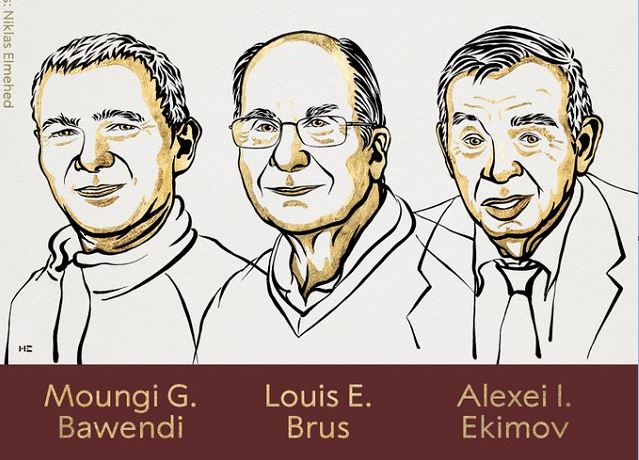Nobel prize in Chemistry awarded to Moungi Bawendi, Louis Brus, Alexei Ekimov for quantum dots
The Royal Swedish Academy of Sciences awarded the 2023 Nobel Prize in Chemistry to Moungi G. Bawendi, Louis E. Brus and Alexei I. Ekimov
Stockholm: The Royal Swedish Academy of Sciences has decided to award the 2023 Nobel Prize in Chemistry to Moungi G. Bawendi, Louis E. Brus and Alexei I. Ekimov “for the discovery and synthesis of quantum dots.”
“The Nobel Prize in Chemistry 2023 rewards the discovery and development of quantum dots, nanoparticles so tiny that their size determines their properties,” the Academy said in a statement.
“These smallest components of nanotechnology now spread their light from televisions and LED lamps, and can also guide surgeons when they remove tumour tissue, among many other things,” it added.
A prize money of 11 million Swedish kronor will be shared equally between the laureates.
“Quantum dots have many fascinating and unusual properties. Importantly, they have different colours depending on their size,” said Johan Aqvist, Chair of the Nobel Committee for Chemistry.
Quantum dots now illuminate computer monitors and television screens based on QLED technology.
They also add nuance to the light of some LED lamps, and biochemists and doctors use them to map biological tissue.
Physicists had long known that in theory size-dependent quantum effects could arise in nanoparticles, but at that time it was almost impossible to sculpt in nano-dimensions. Therefore, few people believed that this knowledge would be put to practical use.
However, in the early 1980s, Ekimov succeeded in creating size-dependent quantum effects in coloured glass.
The colour came from nanoparticles of copper chloride and Ekimov demonstrated that the particle size affected the colour of the glass via quantum effects.
A few years later, Brus was the first scientist in the world to prove size-dependent quantum effects in particles floating freely in a fluid.
In 1993, Bawendi revolutionised the chemical production of quantum dots, resulting in almost perfect particles.
This high quality was necessary for them to be utilised in applications.




 Ms Kalinga
Ms Kalinga